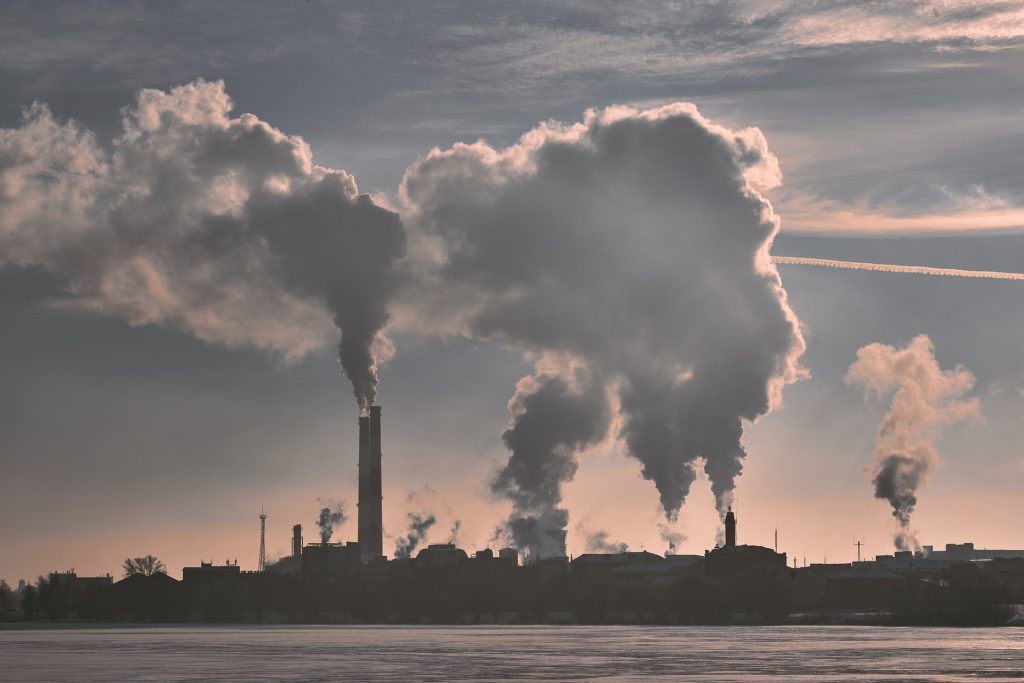
The Anthropocene: Shutting down scepticism
Image: https://unsplash.com/@shaikhulud
The world is tired of hearing about climate change. Whether it’s because of a constant injection of anxiety, or fatigue from attempts at a cleaner, greener lifestyle. But there are still so many who refuse to acknowledge the flames of the raging fire that destroys our Earth – until very recently even the President of the US was a prominent member of that many – and until we are all on the same page we are in no position to quell the outcries of the climate emergency.
Since the early realisations of climate change, it has been made abundantly clear that humans are incredibly naïve in their role, or at least the extent of their role, in the destroying the planet. It has been 84 years since Guy Callander first connected the increase of carbon dioxide in the atmosphere to global warming, and the obvious must be pointed out here: it does not take 84 years to correct your crash course. But humans seem to be embedded with the idea that they are of a separate nature to the rest of the globe and its species, a nature below their own. We are so disconnected from the rest of our animal kingdom. The rights we have gifted ourselves as humans are so much greater than the treatment we have decided is appropriate for every other species. The human exceptionalism paradigm has been fuelled by society and the sociology surrounding it.
Wikipedia’s article on humans is a great reminder of our true essence.
And so, we pillage the Earth’s resources, we destroy habitat, we mould our environment into something that has humanity, its society and interests forged into its core. We have come to a point where the Earth is in a recognisable new state: the Anthropocene.
Earth’s history can be divided into different periods, this division known as an epoch. Scientists have up until recently defined the epoch we are currently living is as the Holocene, beginning in 10,000 BCE after the most recent ice age. However, due to the undeniable fact that the last century has seen a clear change in the globe, it is now up for debate whether we should establish a new epoch – the Anthropocene. The Anthropocene is human-centric, acknowledging humanity’s impact on the Earth.
Aside from the arguments on where to place the epoch event (some suggest the industrial revolution, or post World War 2, among others) any debate on the Anthropocene is both unjustified and honestly, stupid. The defining trait of a new epoch can be clearly seen; first, human activity has permanently altered the Earth’s geological makeup – plastics and an abundance of chicken bones can now be found amongst the layers of dirt and fossils. Second, climate change marks a significant shift in one of Earth’s natural systems. And, destabilisation of one system unavoidably destabilises all the others. Humanity has left more than its mark on the state of the globe. Alongside this, since the industrial revolution we have populated the planet with endless new man-made materials, skyscrapers and technologies. We have melted icecaps, sunken land, and pushed species to extinction. The Earth would be a radically different scape if not for human beings.
Without acknowledging the Anthropocene, I both truly fear and believe that there will be no turning around from our inevitable doom. 84 years in the making, there will be no room left for our plane to pull up before crashing into the ground, no matter how many corporations greenwash themselves, no matter how many vegans douse themselves in blood in the street. Without mass acknowledgement of human impact on our world, there will be no brighter futures ahead of us. As they all say, the first step to change is to admit you have a problem.
It is becomingly increasingly obvious that the elite love to push society into practicing ‘’sustainability’’ – cutting down on meat, taking shorter showers, buying an electric car – to scapegoat the blame from their own actions, when in reality it is their actions that make more than the biggest difference. If companies phased in electric cars sooner, we can only imagine the decrease in CO2 pumped into the atmosphere. This is why we must emphasise our damage as a collective, everyone in humanity must drop their veil of ignorance. Not just the middle class worker who can afford to shop organically, but the CEO who’s company has produced 106,510,086 metric tons of greenhouse emissions in the last year.
Perhaps it is human nature to always believe you are better than those who are different. If humans are going to continue murdering others on the basis of skin tone, denying human rights on the basis of sexuality, then we are a long way off from treating different species as our animalistic equivalents. But if at the very least humanity could acknowledge, and own their megalomania, then the world would probably be much easier to breath in.

0 Comments